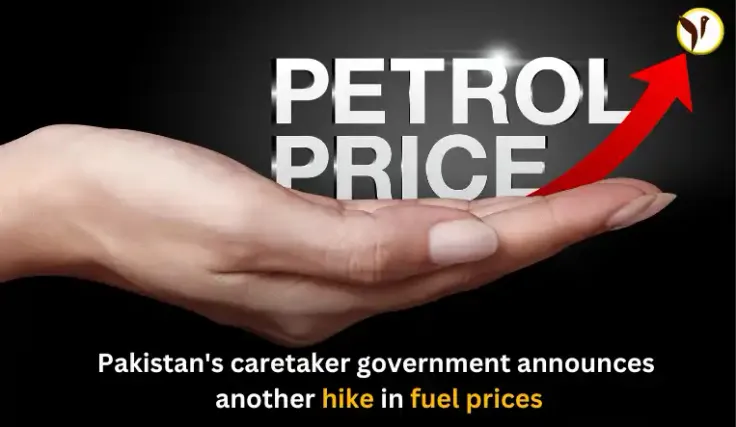Pakistan's interim government has announced a significant increase in the prices of petrol and diesel, pushing them to a historic high of over Rs 330 per liter. This move comes amid the backdrop of double-digit inflation in the financially strained country.
On Friday night, the Ministry of Finance disclosed the price hike, which includes a rise of Rs 26.02 for petrol and Rs 17.34 for diesel per liter, following approval from interim Prime Minister Anwaarul Haq Kakar. As a result of this increase, petrol and high-speed diesel (HSD) are now surpassing the Rs 330 mark at fuel stations, marking a significant milestone in the country's history, as reported by the Dawn newspaper.
This surge in fuel prices coincides with a staggering 27.4% increase in the inflation rate for August, placing an unbearable burden on the general population, given that petrol and HSD are essential for both private and public transportation.
The Ministry attributed this price adjustment to the rising trend of petroleum prices in the international market. It's worth noting that the caretaker government had already raised petrol and diesel prices by over Rs 14 on September 1. Furthermore, there has been a cumulative increase of Rs 32.41 and Rs 38.49 per liter in petrol and HSD prices, respectively, since August 15, resulting in a total hike of Rs 58.43 and Rs 55.83 per liter within just one month. This translates to a 20% increase in the cost of petrol and diesel since the interim government assumed office in August.
It's important to highlight that there is no Goods and Services Tax (GST) applied to petroleum products, but the government imposes a petroleum development levy (PDL) of Rs 60 per liter on petrol and Rs 50 per liter on HSD as part of its commitment to the International Monetary Fund (IMF).
In July, the IMF disbursed USD 1.2 billion to Pakistan as part of a USD 3 billion bailout program spanning nine months, aimed at supporting the government's efforts to stabilize the country's struggling economy. Pakistan's economy has faced continuous challenges in recent years, leading to unchecked inflation and significant financial stress on the impoverished population, making it exceedingly difficult for many to meet their basic needs.
Also read, Koo Seeks Funding or Strategic Partner Amid Challenging Market Conditions







